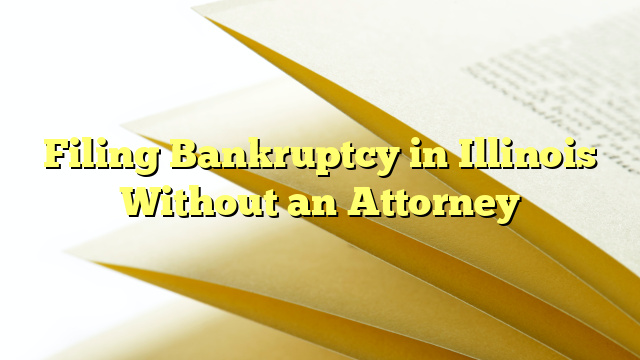Table of Contents
- Do you need a lawyer to file bankruptcy in Illinois?
- What are three things you Cannot file bankruptcy?
- Can you personally file for bankruptcy?
- What is the downside of filing for bankruptcy?
Do you need a lawyer to file bankruptcy in Illinois?
No, you do not need a lawyer to file for bankruptcy in Illinois. The Bankruptcy Court has simplified the filing process and made it easier for individuals to file without an attorney. However, bankruptcy laws are complex and filing without an attorney can be risky. It is important to understand the documents you are filing and the process of filing. To avoid mistakes, it is best to seek the advice of an attorney before filing.
What are three things you Cannot file bankruptcy?
There are several types of debts and liabilities that cannot be discharged in bankruptcy. These include:
- Child support, spousal support, and alimony
- Most tax debts
- Debts incurred through fraud
- Debts not listed on the bankruptcy petition
- Criminal fines
- Student loans
Can you personally file for bankruptcy?
Yes, individuals can file for bankruptcy without an attorney. However, it is important to understand the documents you are filing and the process of filing. To avoid mistakes, it is best to seek the advice of an attorney before filing. Additionally, even if you file without an attorney, you may be required to attend a creditors meeting and/or a court hearing.
What is the downside of filing for bankruptcy?
The downside of filing for bankruptcy is that it can affect your credit score for up to 10 years. Additionally, filing for bankruptcy can make it difficult to get approval for new credit and can limit your loan options. Furthermore, filing for bankruptcy can have an emotional toll, as it can be difficult to accept that you have financial troubles and need to seek the protection of the court.

